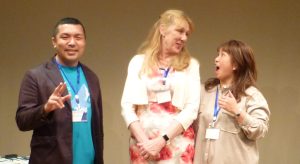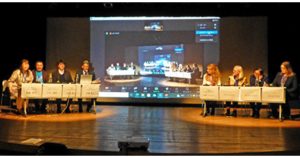Katirai Amelia, one of the researchers working on the AIDE Project, wrote a report on the ethical, legal, and social challenges of generative AI such as ChatGPT.
On April 10, 2023, one of the researchers on AIDE project, Specially Appointed Assistant Professor Katirai Amelia, who is a member of one of the research groups of the Center for the Study of Research Center on Ethical, Legal and Social Issues (ELSI) at Osaka University, published an “Overview of Ethical, Legal, and Social Issues (ELSI) of Generative AI: March 2023 Edition” in Japanese.
Dr Katirai reports on the current trends as of March 2023 of “Text Generation AI (e.g. ChatGPT)” and “Image Generation AI,” which are now being used by an increasing number of people in Japan and all over the world, considers the ethical, legal, and social issues of Generative AI technology.
Section 3 of the report explores “Reactions by various Field” with part 3.7 reporting on “Reactions in the Medical Field.” This section is relevant to the issues we are concerned with in the AIDE project.
Several researchers and companies are currently considering the use of generative AI in the medical field. While presenting examples of the kinds of mistakes made by generative AI, showing the need for a human eye, the report also provides a straightforward description of the current situation concerning the possibilities of the technology, including addressing various issues and expectations, such as the possibility of mitigating “Health care professional burnout” in the medical field by having generative AI take on repetitive tasks, but also the dangers of generative AI and the need to protect patient privacy.
Click here to read the report;
https://doi.org/10.18910/90926
The AIDE project aims to provide information on these issues and expectations surrounding contemporary AI, and to create a platform for patients and citizens to express their opinions about the latest developments.



